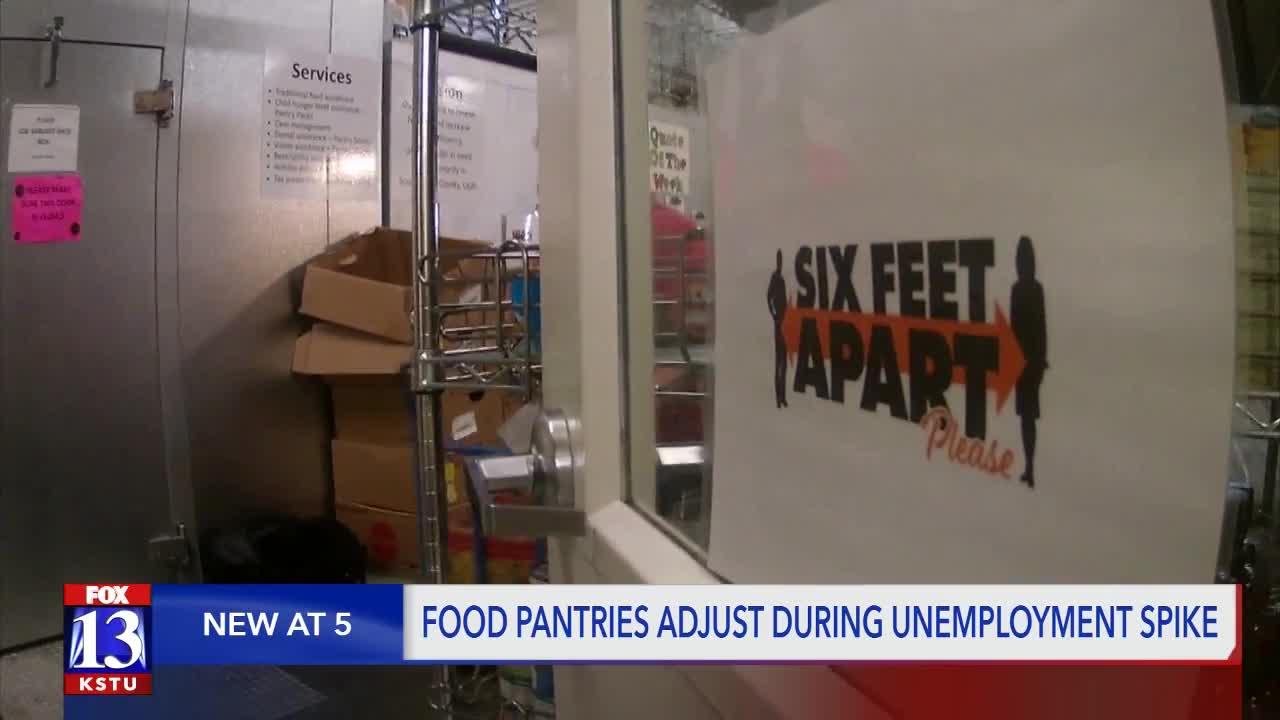BOUNTIFUL, Utah — Food pantries across the state are looking for donations as need increases in wake of the COVID-19 pandemic.
Inside of the Bountiful Community Food Pantry volunteers were hard at work sorting donations, filling grocery bags, and organizing them into portioned carts for different sized families.
In the back, cans of food and other non-perishable items fill metal bins – in the front "shopping" area, perishable goods, canned goods and other items, are neatly organized onto shelves.
It may look the same, but in recent weeks the facility (like many others in the state) has had to undergo major changes.
“What we’ve done is used basically an approach of curbside service,” said Bountiful Community Food Pantry Director, Lorna Koci.
Large bottles of hand sanitizer are now scattered throughout the building, volunteers are armed with facemasks, and disinfecting has become a never-ending job.
“We’re trying to do everything we can to be safe, keep our volunteers safe, so we can continue serving at this time of need,” said Koci.
Part of that safety is the aforementioned curb-side service. Clients are no longer allowed inside of the facility to ‘shop’ and must now wait in their cars.
“We have volunteers inside that get that food ready, put it in a grocery cart for [the client] and then bring it outside for them to put into their car,” Koci said. “We’re trying to have as few people in the building that we need to get the work done that we need to do. We have people that want to be volunteering and we wish we could use them.”
Despite having less staff and more expectations for workers, the demand is high.
“We had a big blip in March, we had a significant increase in the amount of people coming to get food,” Koci said.
Koci believes the now-steady uptick in clientele can be attributed to the rising unemployment rates.
“We know Department of Workforce Services is being inundated with requests, so we are really helping to fill that gap for many people who have applied for assistance but haven’t been able to start yet with it,” she said.
“To see the number of people who are out of work,” she continued. “It is really difficult.”
With less staff, more expectations and more demand, they are still doing everything they can to keep donation bins and carts full.
“We don’t want anybody to be hungry,” Koci said.
It’s not easy, but their hearts have never been fuller.
“This food means a great deal in these uncertain times, we have people say they don’t know what they would do if it weren’t for the help that they get from the pantry,” Koci said. “[Exposure to the virus] is concerning, but our passion for helping is greater than our concern.”
Bountiful Community Food Pantry isn’t the only one feeling the brunt of the pandemic.
According to a new survey conducted by Utahns Against Hunger, which weighed the impact of the pandemic, many food pantries across the state have seen this same increase in demand -- and while pantries are meeting the needs of their clients, the survey suggests there is concern for long-term sustainability without additional resources and funding.
“Many pantries have seen decreases in staff, volunteers, hours of operation and capacity to serve, and at least eight pantries closed due to the quarantine or concerns about COVID-19.”
The survey also found 59-percent of pantries reported a ‘non-food need,’ as shown in the chart below.

If you are in a position to donate or are in need of food assistance, call 211 to find a food pantry near you.



